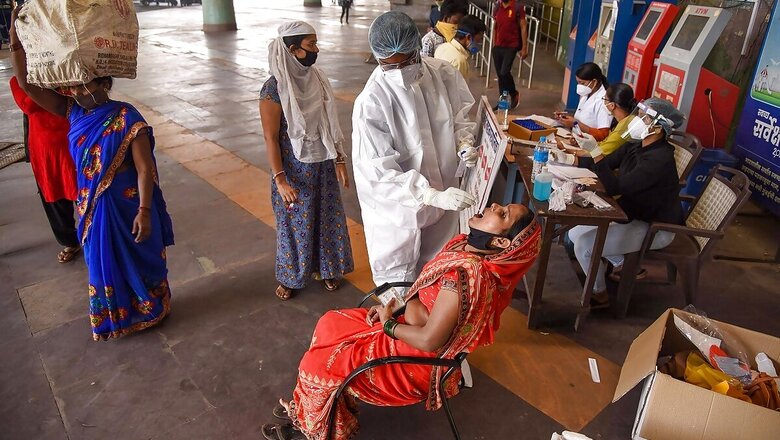
views
Refuting reports claiming of a unique Covid-19 strain found in Andhra Pradesh, the Hyderabad-based Centre for Cellular and Molecular Biology (CCMB) on Wednesday said the prevalence of ‘N440K variant’, particularly detected in Visakhapatnam, is less than 5 per cent and likely to disappear soon.
Speaking exclusively to ThePrint, CCMB Director, Rakesh Mishra said that the N440K variant will be soon replaced by the existing coronavirus strains and there is no evidence which showed that the N440K strain is deadly or more infectious than other variants.
“There is no unique AP strain or a Vishakapatnam strain. Neither were any existing strains found to be more infectious or deadly than what we already saw before. The N440K has been around for quite some time and was prevalent in other southern states (Karnataka, Kerala) earlier. But now the N440K in Andhra is less than 5 per cent and is likely to be replaced by a double mutant or any other variant. It could have been around during the first wave also,” he said.
Mishra, who denied that the strain is 15 times more virulent in Andhra Pradesh, said that it would be a misinterpretation to claim so. “There was some misinterpretation — our report said the virus grows 10 or 15 times more when grown in a culture. But culture is a different kind of animal cell that we grow and in that, we replicate the virus and the yield is more. That does not reflect infectivity in humans. Because humans are whole systems; they have immune systems and a lot of other variations. So, infectivity cannot be compared to what happens in a culture cell,” ThePrint quoted him as saying.
Explaining more on the same, CCMB’s Vishal Shah said, “We did not compare the infective titer of N440K with the UK or double mutant in this study. We compared it with its parent strain which did not have N440K mutation and with another strain which is now almost lost among the population.”
We did not compare the infective titer of N440K with UK or double mutant in this study. We compared it with its parent strain which did not have N440K mutation and with another strain which is now almost lost among the population.— Vishal Sah (@acurious_one) May 4, 2021
However, a report published in The Hindu claimed that the strain first discovered in Kurnool, is considered to be at least 15 times more virulent than the earlier ones, and may be even stronger than the Indian variants of B1.617 and B1.618. District Covid Special Officer PV Sudhakar said that they have observed that the new variant has shorter incubation period and the progress of the disease is much rapid. In the earlier cases, a patient affected with Covid-19 would take at least a week to reach the hypoxia or dyspnea stage, but now patients are reaching the serious condition stage within three or four days. Sudhakar added that it has led to pressure on beds with oxygen and ICU beds.
Read all the Latest News, Breaking News and Coronavirus News here. Follow us on Facebook, Twitter and Telegram.




















Comments
0 comment